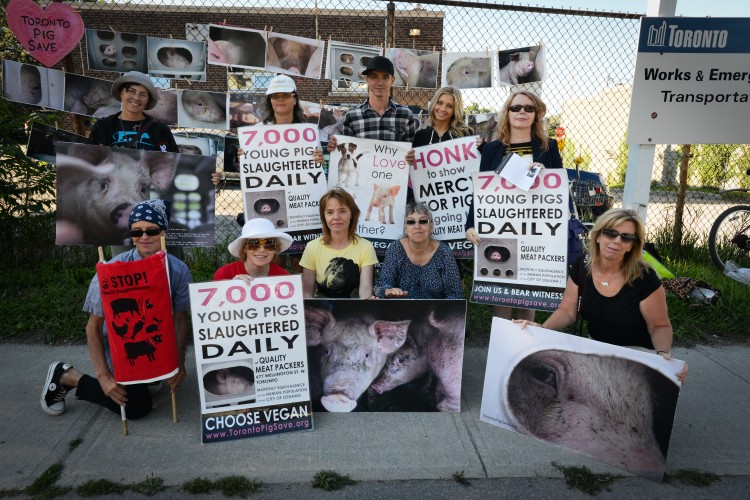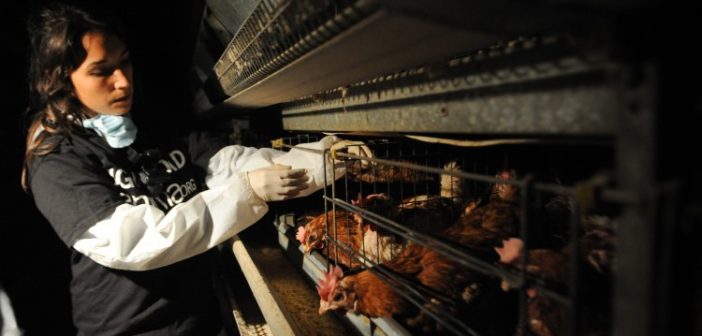Sometimes people ask me for ideas or advice about how exactly they could or should help animals. They are trying to find out what kind of activism fits them best.
Basically, I think we need to find some kind of sweet spot that is on the junction of three different aspects. You can see them in the drawing below:

What you love, or are passionate about: don’t just say “animals.” That’s probably a bit too general. Find something more concrete than that. Maybe it’s vegan cooking to help animals. Or public speaking about animals. Or maybe you are very passionate about people and how they function.
What you are good at: you may have a certain skill set. Maybe, because of your education, talent, or experience, you can do something many other people can’t do, or not as well. You might be a graphic designer, an IT person, a teacher…
What has an impact: this is about what really helps animals. Everything has an impact, of course, but some things have more impact than others, and some things may even have a negative impact.
The overlap between these three different categories can vary: it may be small, or it may be bigger. You could be one of those human beings for whom effectiveness and feeling good entirely overlap. That is, you only feel good about your work when you know you’re having the most impact (don’t think you’re like that too quickly though, you might be overlooking things).
This is probably the exception, and more often the overlap is smaller, and there may be contradictions. You may love doing something, but that something is maybe not the most effective thing you can do. Or you may love doing something, like public speaking, but not be any good at it (you may need other people to tell you that). Or you may be the most effective when you use your existing skill set, but maybe you need some variation and you don’t feel like using it as a volunteer, outside of your day job. It would be a pity, obviously, if you have a degree in cellular biology and could make a contribution to cultured meat, but you choose to leaflet instead.

When there is little overlap or when there are conflicts, you can basically choose what you prioritize. Most people in general (I’m not only talking about vegans or activists now) usually prioritize their own happiness. As activists or people concerned about the world, we can probably expect a little bit more from ourselves: we can at least give some weight to the impact that we have with our actions, and not just do what feels good. I would say it’s good to give the impact-factor a lot of consideration. Some people, however, may go too far in this, and will unequivocally prioritize impact, at the expense of their own well-being, which is probably not the best or most sustainable idea.
Of course, you can make combinations: distributing leaflets about animals seems to be a pretty effective investment of your time, but imagine you don’t really like it. Then you could do that maybe one or two hours a week, and devote the rest of your volunteer time to something you like better (but which may be less effective).
Basically, you want to do good for animals, but you also want to feel good about what you’re doing. If you do something that doesn’t make you feel good, you will probably only be able to keep that up for a limited time. This may be worthwhile in itself, because it is, after all, time that you have given to the cause. However, there is always the risk that people seriously burn out from doing something that they don’t like — even if it is effective — and that makes them give up on activism altogether, which probably would be a loss.
So my message is: make a healthy mix. Don’t just do anything because it makes you feel good, but don’t go all out on effectiveness either, because that may burn you out.
Featured image: activists from Animal Equality carry out open rescue for hens in battery cages. Image credit Jo-Anne McArthur / Animal Equality.





